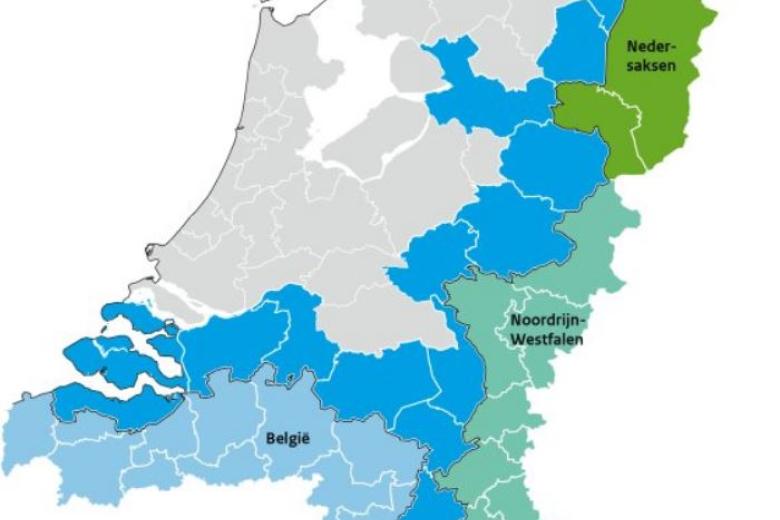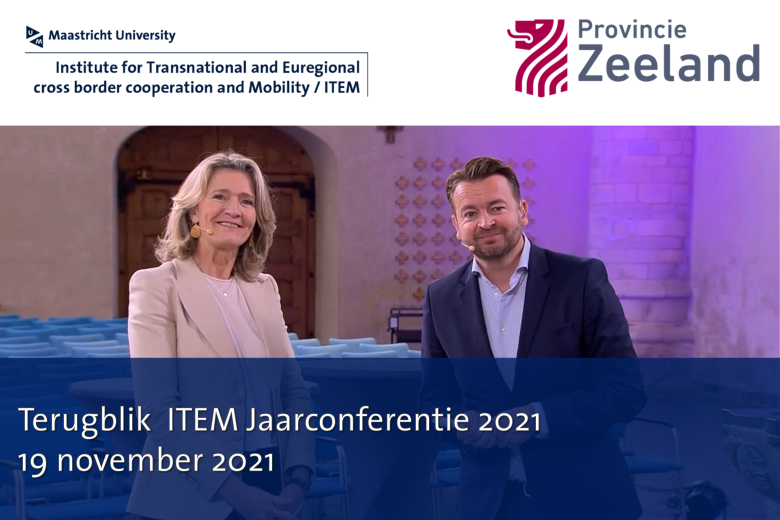Summary report on PhD meeting on Pensions: the diversity of pensions
On June 23 the first PhD Meeting on Pensions took place, a joint initiative of the Institute of Transnational and Euregional cross border cooperation and Mobility / ITEM of Maastricht University and the Competence Centre for Pension Research / CCP from Tilburg University. The main purpose of this meeting was to bring together PhD-researchers and other researchers in the field of pension and related fields of research, both from the Netherlands as well as from Belgium. Not only for the purpose of stimulating multidisciplinary research but also for expanding the pension research network. For this purpose, both the networking lunch as the networking drink offered enough opportunity.
The emphasis of the programme laid on six plenary pitches and workshops. These pitches and workshops offered the possibility for six PhD-researchers to discuss and assess their research and get feedback from other participants. Attention was given to research on pension communication, cross-border legal and fiscal pension issues and econometrics.
Pitches
After a cordial word of welcome by Prof. Dr. Anouk Bollen-Vandenboorn (Maastricht University) and Dr. Bastiaan Starink (Tilburg University), the moderators of this afternoon, Elmar Schmidt started with the first pitch. These pitches opened the door for three PhD-researches to present their research briefly and discuss with the participants.
Elmar is a researcher at the University of Utrecht and the Levenbach Institute. His PhD-research focuses on the possibilities for Premium Pension Institutions (PPI’s) and comparable EU pension institutions to increase and enhance the freedom of choice and the sustainability of pensions. In his pitch the cross-border Institution for Occupational Retirement Provision (IORP) was highlighted. Elmar stated that cross-border pension activity of pension funds hardly gets off the ground and in case it does, this is mainly between neighboring countries, especially between England and Ireland. This finding is the overture to one of the research questions is his research: under what conditions can IORP’s be active in a cross-border context? In view of the European legislation, the freedom of services and the freedom of establishment, this question will be discussed. One of the aspects that, according to Elmar, needs attention is the shift from DB to DC pension schemes and the question in what way these schemes should be developed by a PPI, in view of the adequacy of pensions.
Elmar relates his research also to the objective, stated by the European Commission in the White Paper on adequate, safe and sustainable pensions regarding the adequacy and sustainability of pensions. In his research he will mainly analyze to what extent IORP’s can contribute to the adequacy and sustainability of pensions.
In the second pitch, Jakob Werbrouck from Leuven University, discussed the functioning of cumulation rules within social security in view of the standpoint of the Belgian legislator. These cumulation rules affect, amongst others, the amount of pension payments and unemployment benefits. Jakob distinguishes between the active and passive dimension. The active dimension concerns the combination of social security payments with labor income. On the contrary, the passive dimension concerns the combination of social security payments with another payment or benefit from social security. In his PhD-research he focuses on the view of the legislator regarding the social risks of age. This view enables the Belgian legislator to assess what risks should be protected by pensions. On the basis of this view, the Belgian legislator develops cumulation rules and accompanying conditions. Moreover, the different pension ratios in the course of time and their influence on the cumulation rules are analyzed. On the basis of this analysis the research question can be answered, that is which variable, except for demographic changes, lead/ have led to a change in the view of the Belgian legislator on the social risks of age.
In the third and last pitch, Suzanne Kali from Radboud University Nijmegen and affiliated to the Levenbach Institute, discussed the intergenerational solidarity in the Dutch second pension pillar. Suzanne provided the participants with an overview of the current pension system. This pension system is under pressure concerning the financial sustainability, partly due to ageing. Another characteristic of the current Dutch pension system is the combination of individual (e.g. funded pension schemes) and collective (e.g. collective risk sharing and the average premium) elements. This finding was related to the purpose of her research, i.e. analyzing the solidarity between current generations and on the basis of this analysis find recommendations regarding intergenerational solidarity for pensions.
The research is discussed from a Dutch and European legal point of view and contains a comparative legal component regards Denmark and England (which conclusions can be drawn from these two countries?). Particularly, the mandatory participation, the average premium, the prohibition of ringfencing and cut backs on pension payments will be compared and involved in the recommendations for developing intergenerational solidarity. Suzanne emphasized that also attention will be paid to the current Dutch discussion regarding the sustainability of the pension system, i.e. the proposal of the Social and Economic Council of the Netherlands (SER) on the individual pension funding combined with collective risk sharing.
Workshops
After a short break the meeting was continued with a workshop by Wiebke Eberhardt from Maastricht University. In this interactive workshop Wiebke discussed her research on pension communication. Her research in the field of financial services especially focuses on the influence of marketing interventions on the financial decision-making on the subject of pensions and retirement provisions. More specific, the research focuses on the possibilities to tailor pension communication to the heterogeneous characteristics and needs of individual pension participants.
The research on the optimization of pension communication goes further that only the socio-economic factors, i.e. financial know-how, but also entails factors like beliefs, emotions and preferences. On the basis of these factors research is done on the segmentation of pension participants. These participants can be divided in three groups: the overconfident, the emotional and the alpha males. With regards to this segmentation, research is done on the effectiveness of tailoring pension information on the basis of the characteristics of these three groups.
Wiebke also presented some of her interesting research findings. E.g. compared to men, women consider informing themselves less important, until the age of 40. After this age, this difference is equalized. Besides this, women experience higher anxiety for their pension and they experience a higher trust in their own pension provider. Also, women are more planning-oriented and significantly less risk taking, both in general and financially.
Subsequently, Kristy Jansen from Tilburg University, presented her econometric research on pension funds and illiquid assets: market illiquidity versus funding liquidity. The share of illiquid assets, e.g. real estate, private equity and infrastructure, in pension funds’ portfolios has increased over the last years. Pension funds can benefit from increased market illiquidity by applying the so-called dynamic trading strategy: countercyclical and persistent trading. The extent to which pension funds can apply this strategy depends on their liquidity needs, which in turn depends on the monthly pension payments and the amount of margin calls (interest rate swaps and currency swaps). The research analyzes the connection between investments in illiquid assets and the liquidity needs of pension funds and the extent to which pension funds can apply the dynamic trading strategy. Remarkably, large pension funds invest relatively more in illiquid assets just like funds with a longer investment horizon. Also, so-called green pension funds have a longer duration of their liabilities than grey funds, especially because of the longer investment horizon.
In the last workshop Bastiaan Didden from Maastricht University, discussed the qualification problems between social security and supplementary pensions. This qualification issue mainly focuses on the criteria on the basis of which can be determined whether pensions should be qualified as public pension (social security) or as supplementary pension. Due to the fiscal sovereignty, each EU Member State, for tax purposes, uses his own interpretation of these criteria. Also the diversity of the different pension systems and the fiscal facilitating plays a large role in this. The pension systems don’t match when they are compared. Inequalities in the fiscal facilities can be an impediment for the mobility of workers and their pensions and should be taken away.
By means of a concrete example, the so-called ‘Dutch approach’, Bastiaan discussed the qualification problems. This Dutch approach entails the possibility to temporarily recognize foreign supplementary pension schemes for fiscal purposes. The discussion of this approach was followed by several questions: why doesn’t the approach apply to supplementary pensions? Does the approach merely apply to posted workers? How are post active workers treated in this regard?
Looking back
With a total of twenty participants we can look back on a successful first meeting. The different pension related backgrounds of the participants gave rise to interesting discussions. Therefore a second PhD meeting on Pensions will be organized next year. A date is already known: Thursday 22 June 2017, so save the date. Hope to see you then!
Also read
-
Provincial elections from a cross-border perspective
On Wednesday 15 March 2023, there will be elections in the Netherlands. We will then vote for the Provincial Council and the District Water Board. Seven of the 12 Dutch provinces border a neighbouring country. Cross-border cooperation and special attention for border regions is therefore extra...
-
Recap ITEM Annual Conference 2021: Empowering border regions - More than ever?
The importance of cross-border cooperation manifests itself more than ever during the coronapandemic. Multi-level governance is the foundation for taking the next steps; looking for each other and perpetuating relationships at all levels, in administration, politics and practice. This became clear...
-
Working from home will disadvantage cross-border workers unless rules are changed
Unless the EU rules and tax treaties are amended, some cross-border workers will soon have to pay tax in two countries: in their country of residence for hours spent working from home, and in the country in which they work for hours spent in the office. Since COVID-19 has made working from home often...